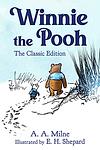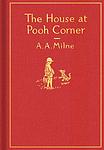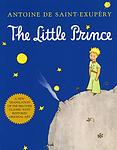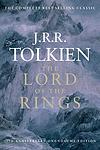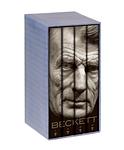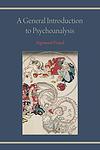Kanon na koniec wieku (Canon at the end of the century)
This is one of the 284 lists we use to generate our main The Greatest Books list.
-
The Master and Margarita by Mikhail Bulgakov
This novel is a complex narrative that weaves together three distinct yet intertwined stories. The first story is set in 1930s Moscow and follows the devil and his entourage as they wreak havoc on the city's literary elite. The second story is a historical narrative about Pontius Pilate and his role in the crucifixion of Jesus Christ. The third story is a love story between the titular Master, a writer who has been driven to madness by the criticism of his work, and his devoted lover, Margarita. The novel is a satirical critique of Soviet society, particularly the literary establishment, and its treatment of artists. It also explores themes of love, sacrifice, and the nature of good and evil.
-
The Plague by Albert Camus
The novel is set in the Algerian city of Oran during the 1940s, where a deadly plague sweeps through, causing the city to be quarantined. The story is told through the eyes of a doctor who witnesses the horror and suffering caused by the disease. The narrative explores themes of human resilience, solidarity, and the struggle against the absurdities of life. It also examines how individuals and society respond to death and disease, creating a profound meditation on the nature of existence and human endurance.
-
Hopscotch by Julio Cortázar
This avant-garde novel invites readers into a non-linear narrative that can be read in two different orders, following the life of Horacio Oliveira, an Argentine intellectual living in Paris with his lover, La Maga. The story explores philosophical and metaphysical themes, delving into the nature of reality and the human condition, while also examining the struggles of intellectual and emotional life. The second part of the novel takes place in Buenos Aires, where Horacio returns after La Maga disappears, and where he grapples with his past, his identity, and his place in the world.
-
The Name of the Rose by Umberto Eco
Set in a wealthy Italian monastery in the 14th century, the novel follows a Franciscan friar and his young apprentice as they investigate a series of mysterious deaths within the monastery. As they navigate the labyrinthine library and decipher cryptic manuscripts, they uncover a complex plot involving forbidden books, secret societies, and the Inquisition. The novel is a blend of historical fiction, mystery, and philosophical exploration, delving into themes of truth, knowledge, and the power of the written word.
-
Ferdydurke by Witold Gombrowicz
"Ferdydurke" is a satirical novel that explores the themes of maturity, identity, and societal norms. The protagonist, a thirty-year-old writer, is forcibly regressed by two professors back to his adolescence and placed in a school setting. The narrative critiques the artificiality of adulthood and the pressure of societal expectations, while also exploring the struggle for self-expression and individuality. The book is known for its absurdist humor and its examination of the human condition.
-
The Tin Drum by Günter Grass
The novel tells the story of Oskar Matzerath, a boy who decides on his third birthday that he will stop growing and remain a three-year-old forever. Oskar is gifted with a tin drum by his mother, which he uses to express his emotions and thoughts. Living in Danzig during the rise of Nazi Germany, Oskar's refusal to grow is a form of protest against the adult world. The book is a blend of magical realism and historical fiction, providing a unique perspective on the horrors of World War II and the post-war era in Germany.
-
The Good Soldier Svejk by Jaroslav Hašek
"The Good Soldier Svejk" is a satirical novel set during World War I, following the story of a Czech soldier in the Austro-Hungarian army. Svejk, the protagonist, is a simple-minded, good-natured man who is frequently arrested for bungling jobs due to his apparent idiocy. Despite his constant run-ins with authority, Svejk manages to maintain his cheerful disposition and even takes advantage of his perceived stupidity to manipulate the system. The book offers a humorous and critical perspective on the absurdity of war and the incompetence of military bureaucracy.
-
Catch-22 by Joseph Heller
The book is a satirical critique of military bureaucracy and the illogical nature of war, set during World War II. The story follows a U.S. Army Air Forces B-25 bombardier stationed in Italy, who is trying to maintain his sanity while fulfilling his service requirements so that he can go home. The novel explores the absurdity of war and military life through the experiences of the protagonist, who discovers that a bureaucratic rule, the "Catch-22", makes it impossible for him to escape his dangerous situation. The more he tries to avoid his military assignments, the deeper he gets sucked into the irrational world of military rule.
-
For Whom the Bell Tolls by Ernest Hemingway
Set in the backdrop of the Spanish Civil War, the novel follows the story of an American dynamiter, who is assigned the task of blowing up a bridge during a crucial attack on the city of Segovia. Alongside the war narrative, the story also explores his relationships with various characters, including his love affair with a young Spanish woman. The narrative beautifully encapsulates themes of love, war, death, and the transient nature of life.
-
89 Poems by Zbigniew Herbert
"89 Poems" is a collection of profound and thought-provoking poems that explore various themes such as history, art, nature, and the human condition. Through his exquisite use of language and vivid imagery, the author invites readers on a journey of introspection and contemplation, delving into the complexities of existence and the timeless questions that define our humanity. With each poem, "89 Poems" offers a unique perspective on life, leaving readers with a renewed appreciation for the power of poetry to illuminate the world around us.
-
A World Apart by Gustaw Herling-Grudziński
"A World Apart" is a powerful memoir that recounts the author's experiences as a political prisoner in a Soviet labor camp during World War II. Through vivid and harrowing descriptions, the book exposes the brutality and inhumanity of the camp system, as well as the resilience and strength of the prisoners. It serves as a haunting reminder of the atrocities committed during this dark period of history and the enduring human spirit.
-
Ulysses by James Joyce
Set in Dublin, the novel follows a day in the life of Leopold Bloom, an advertising salesman, as he navigates the city. The narrative, heavily influenced by Homer's Odyssey, explores themes of identity, heroism, and the complexities of everyday life. It is renowned for its stream-of-consciousness style and complex structure, making it a challenging but rewarding read.
-
The Trial by Franz Kafka
The book revolves around a bank clerk who wakes one morning to find himself under arrest for an unspecified crime. Despite not being detained, he is subjected to the psychological torment of a bizarre and nightmarish judicial process. The story is a critique of bureaucracy, exploring themes of guilt, alienation and the inefficiency of the justice system.
-
The Magic Mountain by Thomas Mann
In this novel, the protagonist, a young, ordinary man, visits his cousin at a tuberculosis sanatorium in the Swiss Alps. Intending to stay for only a few weeks, he ends up remaining there for seven years, becoming a patient himself. The book explores his experiences and relationships with other patients and staff, delving into philosophical discussions on life, time, and the nature of disease. It also provides a vivid portrayal of the European society and intellectual life on the eve of World War I.
-
One Hundred Years of Solitude by Gabriel Garcia Marquez
This novel is a multi-generational saga that focuses on the Buendía family, who founded the fictional town of Macondo. It explores themes of love, loss, family, and the cyclical nature of history. The story is filled with magical realism, blending the supernatural with the ordinary, as it chronicles the family's experiences, including civil war, marriages, births, and deaths. The book is renowned for its narrative style and its exploration of solitude, fate, and the inevitability of repetition in history.
-
Winnie the Pooh by A. A Milne
This classic children's tale follows the charming adventures of a lovable, honey-loving bear named Winnie the Pooh and his friends in the Hundred Acre Wood. With his companions, including the timid Piglet, the gloomy Eeyore, the energetic Tigger, and the wise Owl, Pooh navigates through various situations and dilemmas, often with humorous and heartwarming results. The book is a celebration of friendship, imagination, and the simple joys of life.
-
The House at Pooh Corner by A. A Milne
This book follows the adventures of a lovable bear named Pooh and his friends in the Hundred Acre Wood. The story introduces a new character, Tigger, who adds more excitement to Pooh's world. From building a house for Eeyore, to an expedition to the North Pole, and the invention of a new game called Poohsticks, the friends navigate through their world with humor and wisdom. The book ends with a touching farewell scene as one of the characters prepares to leave the forest.
-
Animal Farm by George Orwell
"Animal Farm" is a satirical fable set on a farm where the animals revolt, overthrow their human farmer, and take over the running of the farm for themselves. The story is an allegory of the Russian Revolution and the rise of Stalin, and the tale is told by the animals that inhabit the farm, primarily pigs who become the ruling class. Despite their initial attempts at creating an equal society, corruption and power ultimately lead to a regime as oppressive as the one they overthrew.
-
Nineteen Eighty Four by George Orwell
Set in a dystopian future, the novel presents a society under the total control of a totalitarian regime, led by the omnipresent Big Brother. The protagonist, a low-ranking member of 'the Party', begins to question the regime and falls in love with a woman, an act of rebellion in a world where independent thought, dissent, and love are prohibited. The novel explores themes of surveillance, censorship, and the manipulation of truth.
-
Doctor Zhivago by Boris Pasternak
Set against the tumultuous backdrop of the Russian Revolution, the book follows the life of a physician and poet, Yuri Zhivago, as he navigates the political and social upheaval of the early 20th century. Torn between his love for two women, his wife Tonya and his passionate mistress Lara, Zhivago's personal struggles mirror the larger societal changes occurring around him. The novel explores themes of love, war, and the human spirit, offering a poignant and complex portrait of life during a time of revolutionary change.
-
In Search of Lost Time by Marcel Proust
This renowned novel is a sweeping exploration of memory, love, art, and the passage of time, told through the narrator's recollections of his childhood and experiences into adulthood in the late 19th and early 20th century aristocratic France. The narrative is notable for its lengthy and intricate involuntary memory episodes, the most famous being the "madeleine episode". It explores the themes of time, space and memory, but also raises questions about the nature of art and literature, and the complex relationships between love, sexuality, and possession.
-
The Little Prince by Antoine de Saint-Exupéry
A young prince from a tiny asteroid embarks on a journey across the universe, visiting various planets and meeting their strange inhabitants. Along the way, he learns about the follies and absurdities of the adult world, the nature of friendship, and the importance of retaining a childlike wonder and curiosity. His journey eventually leads him to Earth, where he befriends a fox and learns about love and loss before finally returning to his asteroid.
-
Cinnamon Shops by Bruno Schulz
"Cinnamon Shops" is a collection of short stories that takes readers on a whimsical journey through the author's childhood memories. Set in a small town in Eastern Europe, the stories are filled with vivid descriptions and surreal elements, blurring the lines between reality and imagination. Through the eyes of the narrator, readers are transported to a world of enchantment, where everyday objects and experiences become magical and extraordinary. With its lyrical prose and evocative imagery, this book captures the essence of childhood wonder and the power of storytelling.
-
Sanatorium Under The Sign Of The Hourglass by Bruno Schulz
"Sanatorium Under The Sign Of The Hourglass" is a surreal and enchanting novel that follows the narrator's experiences in a mysterious sanatorium. Filled with dreamlike imagery and poetic language, the book explores themes of memory, time, and the blurred line between reality and imagination. Through vivid descriptions and rich symbolism, the author delves into the depths of human existence, creating a mesmerizing and thought-provoking narrative.
-
The Gulag Archipelago by Aleksandr Solzhenitsyn
"The Gulag Archipelago" is a comprehensive and stark account of the Soviet Union's forced labor camp system. The narrative, based on the author's own experiences as a prisoner and on extensive research, documents the history, operation, and life inside the Gulag system. It also provides a critical examination of the regime's legal system, police operations, and political leadership. The book is an intense indictment of the Soviet Union's totalitarian regime, revealing its brutality, inhumanity, and vast scale of its prison camp network.
-
And Quiet Flows The Don by Mikhail Sholokhov
"And Quiet Flows The Don" is a sweeping epic set in the early 20th century, following the lives of several characters in the Don River region of Russia. Through the lens of the Melekhov family, the novel explores the impact of war, revolution, and societal changes on both individuals and the community as a whole. With vivid descriptions and rich character development, the book delves into themes of love, loyalty, and the struggle for survival amidst the tumultuous backdrop of historical events.
-
The Lord of the Rings by J. R. R. Tolkien
This epic high-fantasy novel centers around a modest hobbit who is entrusted with the task of destroying a powerful ring that could enable the dark lord to conquer the world. Accompanied by a diverse group of companions, the hobbit embarks on a perilous journey across Middle-earth, battling evil forces and facing numerous challenges. The narrative, rich in mythology and complex themes of good versus evil, friendship, and heroism, has had a profound influence on the fantasy genre.
-
The Complete Dramatic Works Of Samuel Beckett by Samuel Beckett
This book is a comprehensive collection of Samuel Beckett's dramatic works, showcasing his unique style and exploration of human existence. From the iconic "Waiting for Godot" to lesser-known plays, Beckett's works delve into themes of despair, absurdity, and the human condition. With his minimalist approach and masterful use of language, Beckett's plays continue to captivate and challenge readers, offering a profound reflection on the complexities of life.
-
Lord Jim by Joseph Conrad
The novel revolves around a young, idealistic British seaman, who commits a crime of cowardice at sea. He abandons his ship, leaving hundreds of passengers to their fate. He is publicly censured for this act and spends the rest of his life in shameful obscurity in the South Seas, trying to repress the guilt of his past and regain his lost honor. His quest for redemption leads him to a remote island where he gets a chance to prove his courage, but his tragic flaw ultimately leads to his downfall.
-
The Sound and the Fury by William Faulkner
The novel is a complex exploration of the tragic Compson family from the American South. Told from four distinct perspectives, the story unfolds through stream of consciousness narratives, each revealing their own understanding of the family's decline. The characters grapple with post-Civil War societal changes, personal loss, and their own mental instability. The narrative is marked by themes of time, innocence, and the burdens of the past.
-
A General Introduction to Psycho-Analysis by Sigmund Freud
This book is a comprehensive introduction to the field of psychoanalysis, presented by its founder. It explores the unconscious mind, dreams, and the theory of neuroses. The author delves into the mechanisms of the mind, such as repression and resistance, and how these can lead to psychological issues. He also discusses his controversial theories on sexual desire as a driving force in human behavior. The book provides an in-depth understanding of the human psyche and the techniques used in psychoanalysis to treat mental disorders.
-
Steppenwolf by Hermann Hesse
The novel presents a poignant exploration of a man's struggle with his dual nature. The protagonist, a middle-aged man, finds himself torn between his humanistic, intellectual tendencies and his more primitive, wolf-like instincts. As he navigates his way through the surreal and sometimes hallucinatory world, he encounters various characters who challenge his views and push him towards self-discovery and transformation. The narrative delves into themes of alienation, the subconscious mind, and the search for meaning in life.
-
Brave New World by Aldous Huxley
Set in a dystopian future, the novel explores a society where human beings are genetically bred and pharmaceutically conditioned to serve in a ruling order. The society is divided into five castes, each with its specific roles. The narrative follows a savage who rejects the norms of this new world order and struggles to navigate the clash between the values of his upbringing and the reality of this technologically advanced, emotionless society. His resistance prompts a deep examination of the nature of freedom, individuality, and happiness.
-
One Flew Over the Cuckoo's Nest by Ken Kesey
Set in a psychiatric hospital in Oregon, the novel is narrated by a half-Native American patient known as Chief Bromden, who pretends to be deaf and mute. The story follows the arrival of a new patient, a boisterous, rebellious man who challenges the oppressive and dehumanizing system of the hospital, particularly the tyrannical Nurse Ratched. The book explores themes of individuality, rebellion, and the misuse of power, ultimately leading to a tragic conclusion.
-
The Unbearable Lightness of Being by Milan Kundera
Set against the backdrop of the Prague Spring period of Czechoslovak history, the novel explores the philosophical concept of Nietzsche's eternal return through the intertwined lives of four characters: a womanizing surgeon, his intellectual wife, his naïve mistress, and her stoic lover. The narrative delves into their personal struggles with lightness and heaviness, freedom and fate, love and betrayal, and the complexities of human relationships, all while offering a profound meditation on the nature of existence and the paradoxes of life.
-
The Leopard by Giuseppe Tomasi di Lampedusa
"The Leopard" is a historical novel set in 19th-century Sicily, during the time of the Italian unification or Risorgimento. It centers on an aging, aristocratic protagonist who is coming to terms with the decline of his class and the rise of a new social order. The narrative weaves together personal drama with the larger political and social upheaval of the time, providing a rich, nuanced portrait of a society in transition. Despite his resistance to change, the protagonist ultimately recognizes its inevitability and the futility of his efforts to preserve the old ways.
-
Conversation in the Cathedral by Mario Vargas Llosa
Set in mid-20th century Peru, "Conversation in the Cathedral" is a complex narrative that explores the corruption, decay, and turmoil of the society under the dictatorial rule of Manuel A. Odria. The story mainly revolves around two characters - a wealthy newspaper owner's son and his family's former chauffeur. Their chance meeting leads to a lengthy conversation that unravels the intricate web of political and personal corruption, disillusionment, and lost dreams in their lives and in their country. The novel is a profound examination of the power dynamics, societal decay, and the human condition in a politically oppressive environment.
-
Doctor Faustus by Thomas Mann
The novel is a reimagining of the Faust legend set in the context of the first half of the 20th century and the turmoil of Germany in that period. It tells the story of a composer who makes a pact with the devil, exchanging his soul for unlimited creative genius. The protagonist's life and work reflect the cultural and political journey of Germany leading up to World War II, providing a deep exploration of the individual's role in a society undergoing dramatic change. The novel is also a profound meditation on the nature of time, the art and the artist, and the destructiveness of human ambition.
-
The Man Without Qualities by Robert Musil
"The Man Without Qualities" is a satirical novel set in Vienna during the last days of the Austro-Hungarian Empire. It follows the life of Ulrich, a thirty-two-year-old mathematician, who is in search of a sense of life and reality but is caught up in the societal changes and political chaos of his time. The book explores themes of existentialism, morality, and the search for meaning in a rapidly changing world.
-
All Quiet on the Western Front by Erich Maria Remarque
The novel tells the story of a young German soldier, Paul Bäumer, and his experiences during World War I. The narrative explores the physical and emotional toll of war, the camaraderie between soldiers, and the disillusionment of a generation thrown into a brutal conflict. The protagonist and his friends grapple with survival, fear, and the loss of innocence, providing a stark and poignant critique of the futility and destructiveness of war.
-
The Magician of Lublin by Isaac Bashevis Singer
This novel tells the story of Yasha Mazur, a talented and renowned 19th-century Jewish magician living in Poland. Yasha is a complex character, torn between his own desires and the expectations of his religious community. He leads a double life, juggling his career, his marriage, and his multiple affairs. As he grapples with his conflicting identities, Yasha is forced to confront his own moral failings and the consequences of his actions. His journey is one of self-discovery and redemption, offering a nuanced exploration of faith, love, and the human condition.
-
The Grapes of Wrath by John Steinbeck
The book follows the Joad family, Oklahoma farmers displaced from their land during the Great Depression. The family, alongside thousands of other "Okies," travel to California in search of work and a better life. Throughout their journey, they face numerous hardships and injustices, yet maintain their humanity through unity and shared sacrifice. The narrative explores themes of man's inhumanity to man, the dignity of wrath, and the power of family and friendship, offering a stark and moving portrayal of the harsh realities of American migrant laborers during the 1930s.
Rzeczpospolita (newspaper), 42 Books
Canon at the end of the century - a series of 25 (later expanded to 40) most important books of the 20th century published by a Polish newspaper Rzeczpospolita (newspaper).
Added 7 months ago.
This list has a weight of 52%. To learn more about what this means please visit the Rankings page.
Here is a list of what is decreasing the importance of this list:
- Voters: not critics, authors, or experts
- Voters: are mostly from a single country/location
- List: only covers 100 years
If you think this is incorrect please e-mail us at [email protected].















